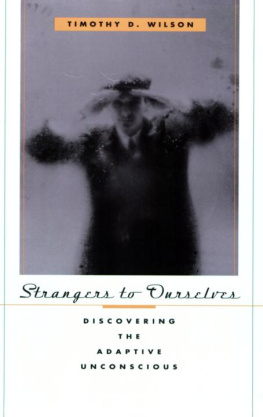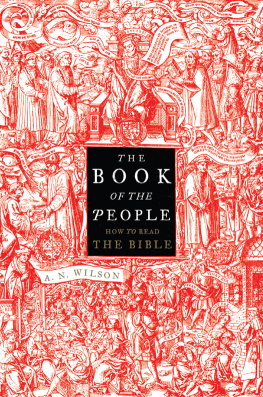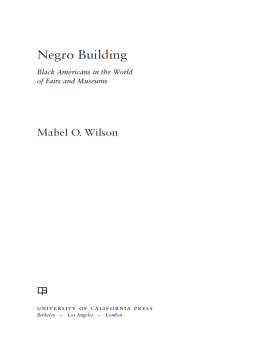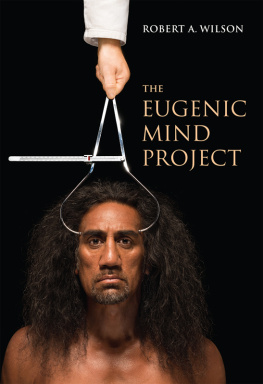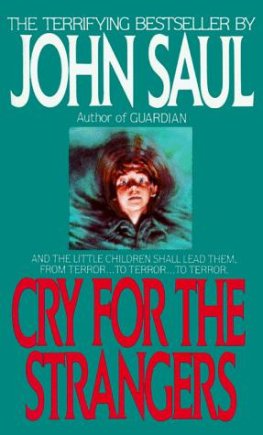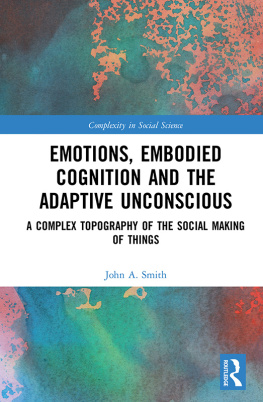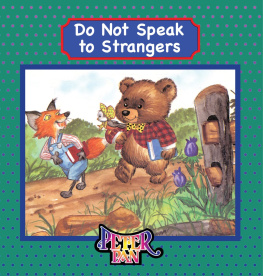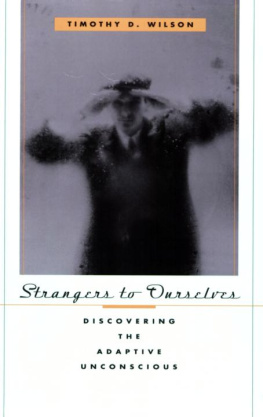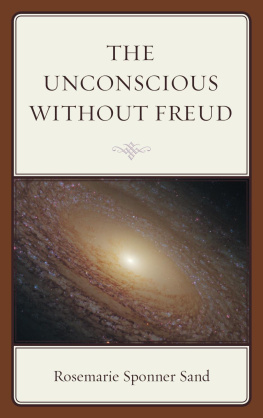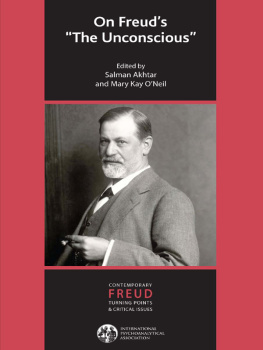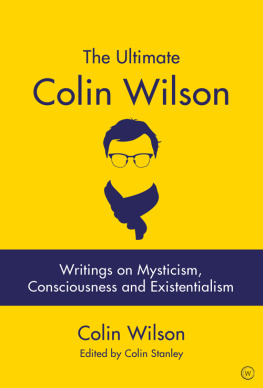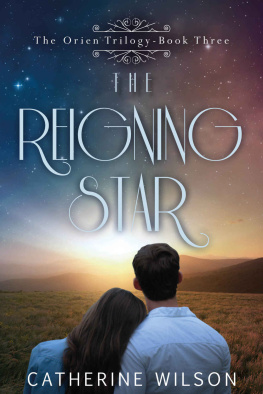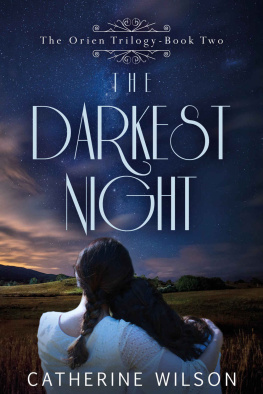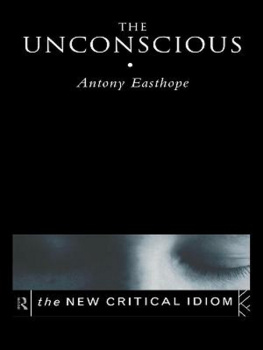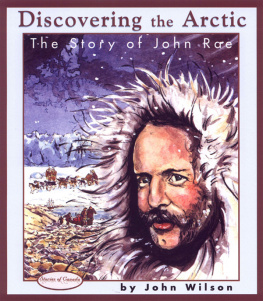Wilson - Strangers to ourselves: discovering the adaptive unconscious
Here you can read online Wilson - Strangers to ourselves: discovering the adaptive unconscious full text of the book (entire story) in english for free. Download pdf and epub, get meaning, cover and reviews about this ebook. City: Cambridge (Mass, year: 2002;2009, publisher: The Belknap Press of Harvard University Press, genre: Religion. Description of the work, (preface) as well as reviews are available. Best literature library LitArk.com created for fans of good reading and offers a wide selection of genres:
Romance novel
Science fiction
Adventure
Detective
Science
History
Home and family
Prose
Art
Politics
Computer
Non-fiction
Religion
Business
Children
Humor
Choose a favorite category and find really read worthwhile books. Enjoy immersion in the world of imagination, feel the emotions of the characters or learn something new for yourself, make an fascinating discovery.
Strangers to ourselves: discovering the adaptive unconscious: summary, description and annotation
We offer to read an annotation, description, summary or preface (depends on what the author of the book "Strangers to ourselves: discovering the adaptive unconscious" wrote himself). If you haven't found the necessary information about the book — write in the comments, we will try to find it.
Strangers to ourselves: discovering the adaptive unconscious — read online for free the complete book (whole text) full work
Below is the text of the book, divided by pages. System saving the place of the last page read, allows you to conveniently read the book "Strangers to ourselves: discovering the adaptive unconscious" online for free, without having to search again every time where you left off. Put a bookmark, and you can go to the page where you finished reading at any time.
Font size:
Interval:
Bookmark:

Timothy D. Wilson
Discovering
the
Adaptive
Unconscious
It might seem that self-knowledge is a central topic in psychology. In some ways it is; from Freud onward, psychologists have been fascinated by the extent to which people know themselves, the limits of this knowledge, and the consequences of failures of self-insight. Surprisingly, however, self-knowledge has not been a mainstream topic in academic psychology. There are few college courses on selfknowledge and few books devoted to the topic, if we rule out self-help books and ones from a psychoanalytic point of view.
I think this is about to change. In recent years there has been an explosion of scientific research on self-knowledge that paints a different portrait from the one presented by Freud and his followers. People possess a powerful, sophisticated, adaptive unconscious that is crucial for survival in the world. Because this unconscious operates so efficiently out of view, however, and is largely inaccessible, there is a price to pay in self-knowledge. There is a great deal about ourselves that we cannot know directly, even with the most painstaking introspection. How, then, can we discover our nonconscious traits, goals, and feelings? Is it always to our advantage to do so? To what extent are researchers in academe rediscovering Freud and psychoanalysis? How can self-knowledge be studied scientifically, anyway? These are the questions to which I turn in the following pages. The answers are often surprising and have direct, practical, implications for everyday living.
I have been interested in these questions since I arrived in Ann Arbor to attend graduate school in the fall of 1973, fresh from my graduating class of twelve at Hampshire College (a small, experimental college in Massachusetts then in its third year of existence). The University of Michigan was an amazingly stimulating place, and I am grateful to the many there who helped launch my career in social psychology. I owe a special debt to my mentor, Dick Nisbett, who taught me how to pursue ideas about selfknowledge empirically and to think about them theoretically. Many of the ideas in this book took seed in the stimulating conversations we had at the Institute for Social Research in the mid-1970s. Even more important, Dick showed me that social psychology is not just a profession or academic pursuit, but a way of life that challenges basic assumptions about the world.
I also want to thank the many graduate students I have worked with over the years who helped me investigate the issues discussed here, including Sarah Algoe, David Centerbar, Michelle Damiani, Dana Dunn, Liz Dunn, Sara Hodges, Debby Kermer, Kristen Klaaren, Dolores Kraft, Jaime Kurtz, Suzanne LaFleur, Dan Lassiter, Doug Lisle, Jay Meyers, Nicole Shelton, Julie Stone, and Thalia Wheatley. I can't imagine having pursued these ideas without this impressive bunch to share the fun and hard work.
I also thank John Bargh, Jon Haidt, Angeline Lillard, Jonathan Schooler, Dan Wegner, Dan Willingham, and Drew Westen, who read all or part of the manuscript and provided valuable feedback. Finally, I am grateful to my Harvard University Press editor, Elizabeth Knoll, for her wise, witty, and patient counsel during the seemingly endless time it took to write this book.
The topic of self-knowledge is an intimate one, and in the following pages I draw upon my own and many of my friends' experiences. To avoid any embarrassment I have sometimes changed the names of my friends and the details of their experiences. My own embarrassing experiences are pretty much intact.

-Alfred Lord Tennyson, "Oenone" (1833)
What are more important than matters of the heart? Or more difficult to decipher? Some people are blessed by knowing exactly what it is their hearts desire, but are cursed by not knowing how to achieve it. Like King Lear, some stumble into a course of action precisely opposite to the one that would satisfy their hearts and minds. Because of their own pride, stubbornness, or lack of self-insight, their goals remain unfulfilled.
But at least such people know what they want, be it their daughters' devotion, a lover's embrace, or peace of mind. A worse fate is not knowing what it is our hearts desire. Consider Marcel, in Proust's Remembrance of Things Past, who is convinced that he no longer loves Albertine and broods and plots and schemes about ways of leaving her, until his housekeeper rushes in with the news that Albertine has left him. At the instant he hears the words, Marcel realizes how much he still loves Albertine: "These words: `Mademoiselle Albertine has gone!' had expressed themselves in my heart in the form of an anguish so keen that I would not be able to endure it for any length of time. And so what I had supposed to mean nothing to me was the only thing in my whole life. How ignorant we are of ourselves."'
Marcel's ignorance of his own feelings is far from rare. Consider Susan, a friend of mine who was once involved with a man named Stephen. Stephen was a very nice guy, kind and attentive and reliable and clearly head over heels in love with Susan. Both he and Susan were social workers and shared many interests. They dated for over a year, and the relationship seemed to be getting quite serious, except for one problem-it was obvious to all Susan's friends that she did not love Stephen. She thought she did, but as far as we could see, Susan had convinced herself that she felt something that she didn't. Stephen was a dear friend, yes, but was he someone she deeply loved and wanted to spend the rest of her life with? No way. Eventually Susan realized that she had been mistaken and ended the relationship.
Perhaps Marcel and Susan are exceptions, people who are especially blind to their own hearts and minds. Yet I suspect that most of us can think of times when we were in a similar state of confusion, like Elizabeth in Pride and Prejudice, who found that her feelings toward Mr. Darcy "could not be exactly defined":
She respected, she esteemed, she was grateful to him, she felt a real interest in his welfare; and she only wanted to know how far she wished that welfare to depend upon herself, and how far it would be for the happiness of both that she employ the power, which her fancy told her she still possessed, of bringing on the renewal of his addresses.2
Imagine that at such times of confusion we could hook ourselves up to a machine called an Inner Self Detector. After attaching electrodes to our temples and adjusting the dials we could ask questions like "How do I really feel about Stephen (or Mr. Darcy)?" After a few whirs and clicks the machine would display the answer on a little monitor (a more technologically advanced version, perhaps, of the Magic Eight Ball that kids use at slumber parties to tell their futures).
To see how people would make use of an Inner Self Detector, I asked the students in one of my college seminars to list the questions they would ask of it. Like Elizabeth in Pride and Prejudice, some of the students wanted to know how they really felt about someone. One person, for example, said her first question would be "How do I truly feel about a couple of people in my life?" How nice it would be to have a machine to tell us the answer to questions like this!
Font size:
Interval:
Bookmark:
Similar books «Strangers to ourselves: discovering the adaptive unconscious»
Look at similar books to Strangers to ourselves: discovering the adaptive unconscious. We have selected literature similar in name and meaning in the hope of providing readers with more options to find new, interesting, not yet read works.
Discussion, reviews of the book Strangers to ourselves: discovering the adaptive unconscious and just readers' own opinions. Leave your comments, write what you think about the work, its meaning or the main characters. Specify what exactly you liked and what you didn't like, and why you think so.

